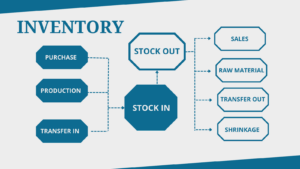In today’s data-driven landscape, businesses leverage various technologies to streamline operations and enhance decision-making capabilities. Two pivotal systems in this realm are Enterprise Resource Planning (ERP) systems and Data Warehouses. While both play crucial roles in business operations, they serve distinct functions and are designed for different purposes.
What is ERP?
Enterprise Resource Planning (ERP) systems are integrated software platforms used by organizations to manage day-to-day business activities such as accounting, procurement, project management, risk management and compliance, and supply chain operations. An ERP system can either reside on-premises or be cloud-based, providing real-time data and process integration across the organization. The primary aim of an ERP system is to increase organizational efficiency by managing and improving how company resources are utilized, ensuring that business operations are run effectively.
What is a Data Warehouse?
On the other hand, a Data Warehouse is a system used for reporting and data analysis, and is considered a core component of business intelligence. It is a central repository of integrated data from one or more disparate sources. Data warehouses store current and historical data in one single place that are used for creating analytical reports for knowledge workers throughout the enterprise. The data contained in the warehouse is uploaded from the operational systems (such as marketing or sales) and the data is then available to provide valuable business insights through tools like reporting and analysis.
Key Differences Between ERP and Data Warehouse
- Purpose and Functionality:
- ERP: Integrates various business processes into a unified system, helping manage the business day-to-day.
- Data Warehouse: Designed primarily for data analysis and reporting, not for transaction processing. It helps in strategic decision-making.
- Data Handling:
- ERP: Manages real-time data generated by various departments within an organization to streamline processes.
- Data Warehouse: Stores large amounts of historical data, making it easier to analyze trends over time.
- Usage:
- ERP: Used by staff at all levels within an organization to manage daily activities.
- Data Warehouse: Used predominantly by data analysts and business leaders to derive strategic insights.
- Integration vs. Aggregation:
- ERP: Focuses on the integration of various business operations into a coherent process.
- Data Warehouse: Aggregates data from various sources to provide a comprehensive view.
Why They Matter
Businesses often deploy both ERP and data warehouses to achieve comprehensive management and insightful analytics. ERP systems help streamline operations and improve efficiency, while data warehouses enhance the ability to perform complex analyses and make informed strategic decisions.
Understanding the distinct roles and benefits of ERP and data warehouses can significantly impact how effectively a business operates and competes in the market. By optimizing and leveraging both systems according to their strengths, organizations can achieve a synergy that drives sustained growth and success.













